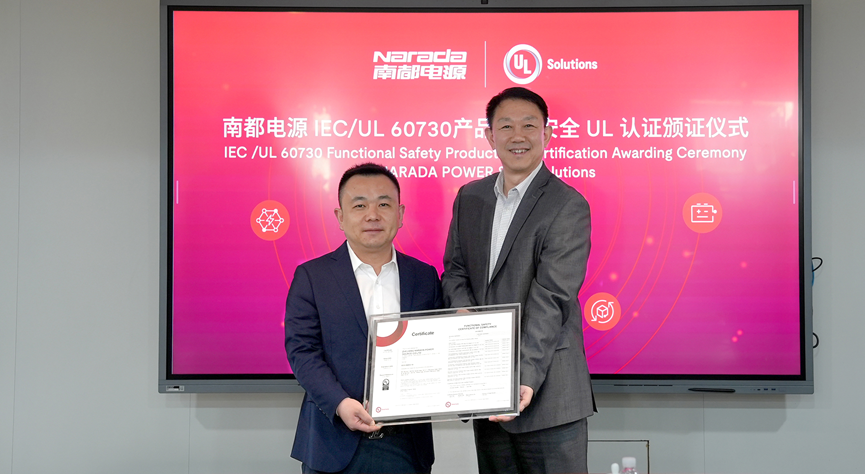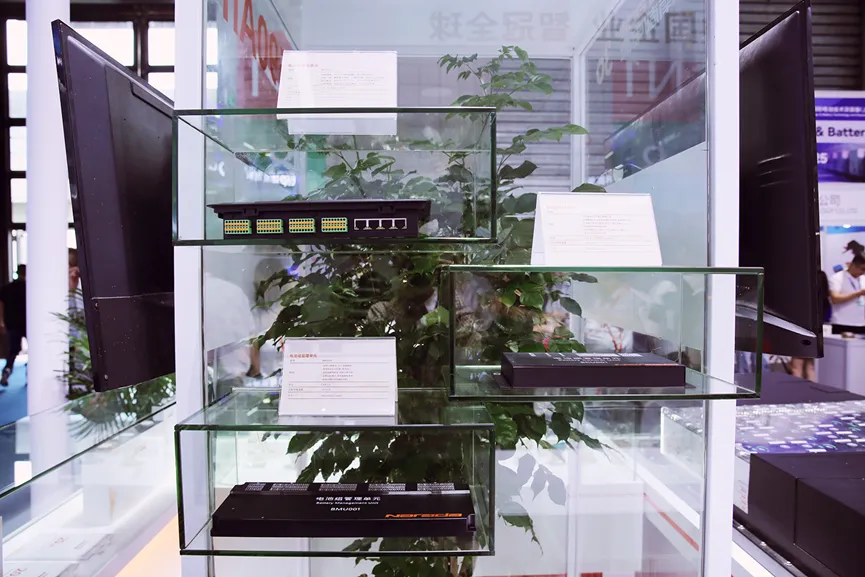Recently, Narada's self-developed energy storage BMS with a three-level architecture successfully passed the IEC/UL 60730 independent functional safety certification. This marks the first-ever BMS functional safety certificate issued by UL Solutions under this certification standard, further highlighting the company's relentless pursuit of product safety and performance.

In this certification process, the internationally renowned testing organization UL Solutions conducted a multi-step evaluation, including safety scheme assessment, failure protection control, and safety function testing. The results demonstrated that Narada's BMS excels in both safety and performance.
Narada continues to observe the evolving application needs and pain points of new energy storage systems. The company's self-developed three-level architecture BMS offers key advantages such as standardization, modularization, and intelligence. Through the collaborative operation of data collection, charging and discharging control, and system management layers, the BMS achieves battery cluster balance and can flexibly meet the demands of energy storage projects of varying scales, ensuring robust safety for the energy storage system.
After years of technological accumulation and continuous research and development in system integration, Narada now has full-stack self-research and self-manufacturing capabilities for energy storage, covering battery materials, battery cells, BMS, PCS, EMS, and system integration.

Founded in 1894, UL Solutions is a global safety science company. The UL certification mark represents high-quality performance and independent third-party certification, serving as a "gateway" to global markets.
Successfully passing the IEC/UL 60730 certification provides significant support for Narada’s global market expansion of energy storage products. This is a milestone event in the company’s full-stack self-research in energy storage systems. Narada will continue to optimize the performance of its energy storage BMS, improve customer experience, support the development of the energy storage industry, and contribute to achieving the "dual carbon" goals.




